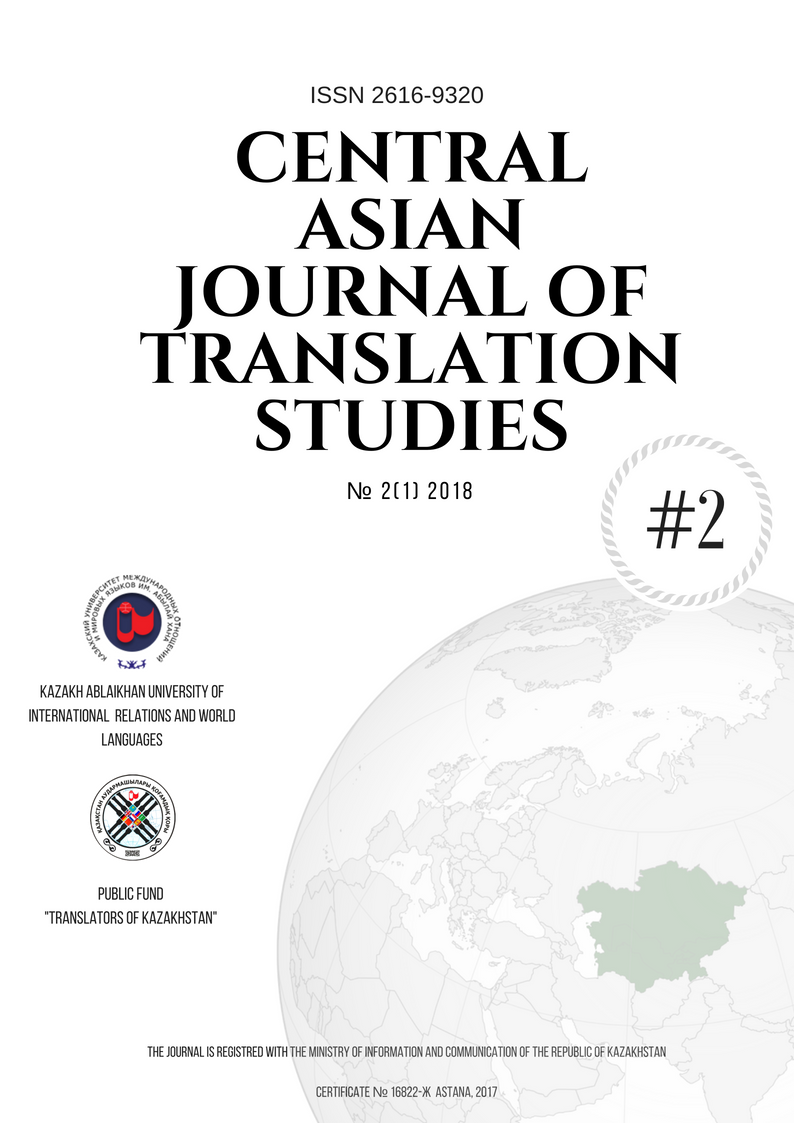TRANSLATION PROCESS: COGNITIVE APPROACHES, CURRENT STATUS AND PROBLEMS
Аннотация
Throughout linguistic translation theory stage development it is distinctly traced several tendencies reflecting the most relevant directions of linguistics and a certain vector in consideration of various approaches to transformational and equivalent transformations in translation. Concepts of "staging" of the translation are replaced by the description of heuristic and cognitive nature of translation process and a research the of processes of the translator are set. The translator is considered as the mediator representing information of the SL in TL. Allocating the translator as the language personality given with cognitive functions of consciousness capable to perception, processing and representation of information, the translation science becomes on the way of the anthropocentric paradigm indicating the need of reconsiderations on the essence of the translation process and terminological scope allowing to express more precisely the processes happening at the level of interpreting in the mind of a translator. Besides, there is a need of further complex researches of a ratio of the translation and thinking, contextual formation of sense for the translation, criteria for evaluation of the translation and also introduction of new opportunities of the experimental analysis of thought process of the translator has emerged. The bases for cognitive consideration of translation process in the field of the interpreting from a position of an anthropocentric paradigm approach are presented in this article. Special attention is paid to the description of current trends in explaining the translation process.


